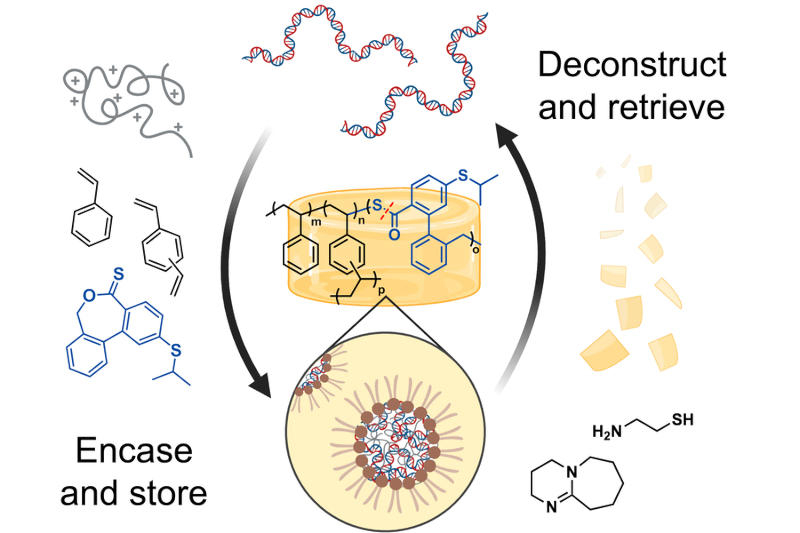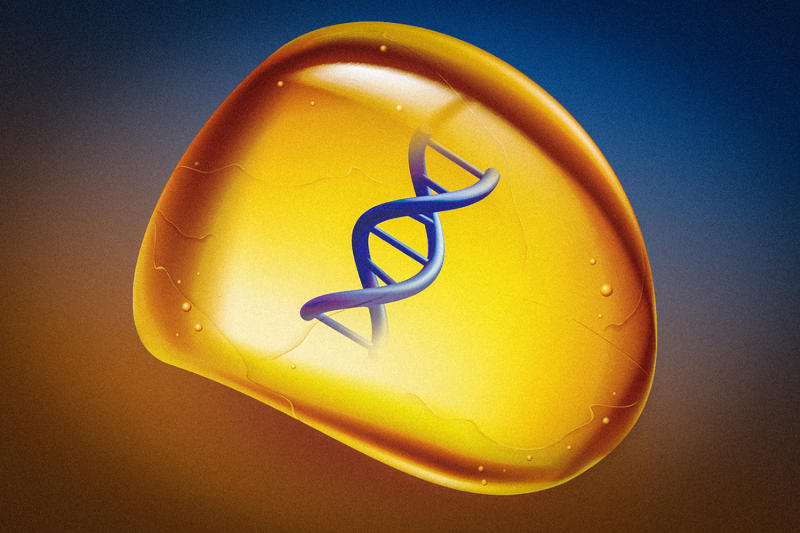DNA’s High Data Capacity Tested and Protected By A Synthetic Amber Invention
While DNA boasts an impressive data retention capacity, it is also fragile. Overcoming this constraint, scientists have devised an ingenious protective layer called synthetic amber which can safeguard the stored data for extended durations.
A single gram of DNA can store up to 215 petabytes (or 215 million gigabytes) data – the equivalent of making the entire internet fit into a shoebox. This has led researchers to experiment with data storage in DNA and their subsequent retrieval, with the challenge of their preservation. Scientists from the Massachusetts Institute of Technology, USA, have thus conceived an artificial amber, designed to protect DNA for a substantial period, as well as to facilitate the later reading of data. The thermo-reactive material becomes a glass-like substance upon heating and disintegrates with the influence of certain chemicals as and when required.

The scientists synthesized a mixture of monomers which forms spherical DNA complexes internally while exhibiting a water-repellent layer externally. This is crucial as moisture can potentially damage DNA. The mixture, upon heating, turns into a glassy block with the data-preserved DNA inside. To retrieve the data, the artificial amber is exposed to a chemical known as cysteamine which results in its disintegration. Subsequently, a detergent named SDS is used which separates the DNA without damaging it. This innovative process has been named T-REX (Thermoset-REinforced Xeropreservation).
During testing, the T-REX technology proved successful in storing DNA sequences of various lengths, even at temperatures upto 75°C. For test sequences, they recorded Abraham Lincoln’s ‘Emancipation Proclamation’, the Massachusetts Institute of Technology’s logo, and the musical theme of Jurassic Park. Upon subsequent extraction and sequencing of the DNA, no errors were noted. Although the current T-REX process takes a few hours, researchers are confident it can be optimized. While it is unlikely that DNA-based storage devices will feature in consumer computers, the technology could prove useful for long-term archival data storage.





